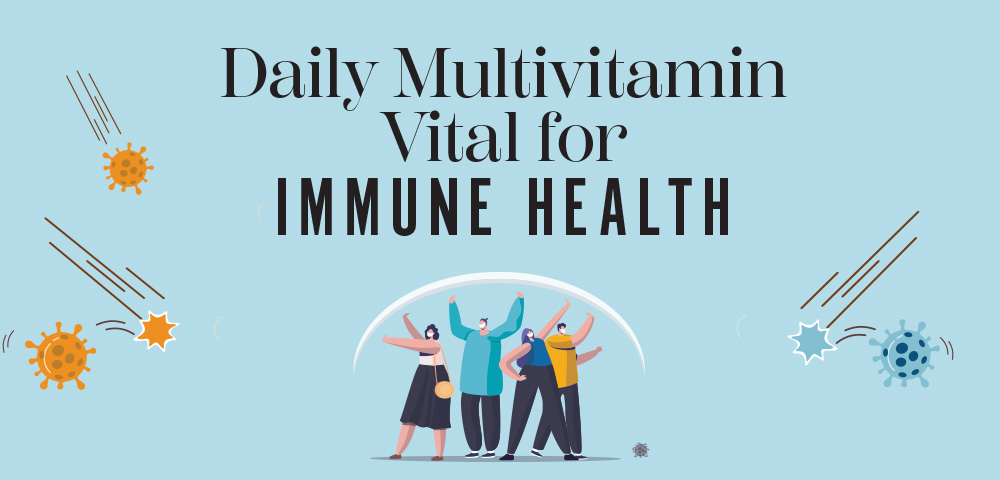
2020 has all been about immune health. In the past, I might have given a talk or two in late summer to prepare for the fall’s cold and flu season, or not, as this topic was never a hot topic of interest. I suspect most people didn’t think about seasonal illness until they got sick because they thought winter sniffles, sneezes, and even fevers, were just a part of life. The pandemic, with the focus on immune health, has changed that perception forever!
One recent study points to the humble multivitamin as a powerful tool in the resistance against upper respiratory illness. Multivitamins have taken a beating in the press in recent years as being a waste of money. Well, think again. In July 2020, a study published in the peer-reviewed journal Nutrients, underlines the difference that a simple step – namely, taking a daily multivitamin, could make in staying well, especially for people over 55. People in this age bracket tend to get sick more often than younger adults and fare worse when infected. It is clear to the medical community that immune support solutions are essential for this significant demographic.
NUTRITIONAL STATUS is a fundamental factor in immune health. After middle age, the risk of having a vitamin and mineral deficiency increases. Conservative estimates indicate more than a third of older adults in North America and Europe are deficient in one or more micronutrients, which occurs because nutrient absorption decreases with age. This deficiency combined with changes in eating habits and a reduction in appetite, can create an immune system decline. Eating a diet rich in organic fruits, vegetables, and getting enough protein is a viable part of the solution. Carefully formulated, high-quality nutritional supplements provide tremendous immune system support, and there is a growing body of evidence to back this up.
In a study entitled, “The Effect of a Multivitamin and Mineral Supplement on Immune Function in Healthy Older Adults: A Double-Blind, Randomized, Controlled Trial,” men and women between 55 and 75 years of age were given either a multivitamin and mineral supplement, or a placebo pill that looked identical, but contained no nutrients. Neither the participants nor the investigators knew who was taking the treatment and who was getting the placebo until after the trial was finished. After 12 weeks, researchers measured nutrient status, various parameters of immunity, and self-reported illness. Study subjects kept a diary of how many days they were sick, as well as symptom severity. Incredibly, people taking the multivitamin had a whopping 70% fewer days getting sick than those taking the placebo. Illness severity was also reduced, with supplement takers mostly experiencing only mild symptoms.
RESEARCH SUGGESTS THAT VITAMIN A DEFICIENCY AMONG OLDER ADULTS IS COMMON AND NEGATIVELY AFFECTS IMMUNE HEALTH.
This study uncovers a meaningful clinical outcome. While the paper’s discussion primarily focused on the importance of well-known immune boosters such as vitamin C, vitamin D, and zinc, it is worth mentioning that the supplement formulators had the wisdom to include the recommended daily allowance of vitamin A of 700 mcg or roughly 2300 IU. Despite widespread and unfounded rumours of vitamin A toxicity, it is a critically essential nutrient for health. While the topic has been under-examined in North America, research in other parts of the world suggests that vitamin A deficiency among older adults is common and negatively affects immune health. The mineral selenium is another immune system ally included in the study that often gets overlooked.
Nutritional status plays a significant role in health resilience – and it’s an arena where we have control. A shortage of any nutrient can impact our well-being. In addition to vitamins A, C, D, and zinc, the research underlines the importance of probiotics, quercetin, and B vitamins for resisting seasonal viral illness. Enjoying a more nutritious diet and taking dietary supplements raises nutrient intake at any age. When it comes to immune health, making a small investment in a quality multivitamin appears to provide inexpensive health insurance.














